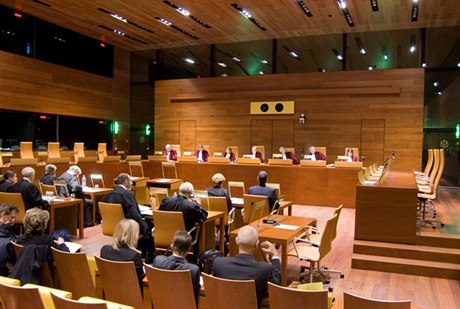Major international electric-equipment makers including Siemens AG (Germany), Toshiba Corp. and Hitachi Ltd. (Japan), Areva (France), and Alstom (Sweden) have lost their challenge before the Court of Justice of the European Union to overturn nearly Kč 1 billion in fines imposed on them in 2007 by the Czech competition office (ÚOHS) for forming a cartel.
The ECJ ruled that the Czech regulator was correct to have fined at least 10 companies for colluding on prices of electric equipment (the fines were later reduced to Kč 942 million from more than Kč 979 million). The decision by ÚOHS came a month after the EU authority has levied a far larger fine — of more than €750 million.
This case concerns an international cartel on the market for gas insulated switchgear (‘GIS’1) in which the European and Japanese undertakings in the electrical engineering sector participated for different periods between 1988 and 2004.
Both the European Commission and the Czech competition authority dealt with certain aspects of this case in 2006 and 2007 and each imposed fines on the undertakings concerned. At the heart of case was whether EU or Czech law applied for the period during which the illegal collusion took place before the country joined the bloc in May 2004.
The companies had argued that they shouldn’t be fined twice — once by the European Commission and once by the Czechs, as such a practice infringes the rule against the accumulation of penalties for the same facts (the ne bis in idem principle). A Czech regional court overturned the penalty in 2008, only to see that ruling annulled in 2009 by a higher domestic court, following an appeal by the ÚOHS.
At the heart of the issue was whether EU or Czech law applied for the period during which the illegal collusion took place before the country joined the bloc in May 2004.
The Commission examined the anti-competitive effects of the cartel on the EU market and applied EU competition rules. The ÚOHS examined the effects of the cartel in Czech territory, applying Czech competition law, but nevertheless limited itself to penalizing the effects produced by the cartel in the Czech Republic before it became an EU member state.
On the above points, the ECJ said in a news release explaining its ruling:
- “[The] competition rules of EU law are not applicable to the anti-competitive effects regarding that undertaking, the latter having been produced in the territory of the Czech Republic before its accession to the Union.”
- “[EU] competition rules do not indicate that the opening of a proceeding by the Commission permanently and definitively removes the national competition authorities’ power to apply national legislation on competition matters.”
- “[The] Czech competition authority may rule on the anticompetitive effects produced by the cartel in the Czech Republic before its accession.”
- “Given that the Czech competition authority penalized only the consequences of the cartel which were produced in Czech territory before 1 May 2004 and that the latter were not taken into consideration by the Commission when imposing the fines, the Court finds that, for lack of accumulation of penalties, the principle of ne bis in idem has not been infringed.”




